
Edward Winter

Only one world champion has had a close family member who made a significant mark on chess. The late Olga Capablanca Clark’s best known contribution to the game’s literature was an article ‘The Young Manhood of José Raoul Capablanca’ on pages 20-37 of the third and final issue of Chessworld (May-June 1964). Exceptionally well illustrated, the piece was ‘based on conversations she had with her husband regarding his feeling toward chess and toward the approach of the [1911] San Sebastián tournament specifically’. Another article, published on pages 114-139 of Town and Country, February 1945, dealt mainly with Nottingham, 1936. She also wrote the Preface to Capablanca’s Last Chess Lectures (New York, 1966 and London, 1967) and contributed to José Raoul Capablanca Ein Schachmythos (Düsseldorf, 1989).
In the 1980s and early 1990s the two of us exchanged many dozens of letters and telephone calls, and she contributed four articles to Chess Notes. The first, also reproduced by many other magazines, was an account of an offhand game between Capablanca and Tartakower, Capa’s score-sheet of which she was prepared to sell for a minimum of $10,000. No bids were received, and the present whereabouts of the document are uncertain. The second and third articles also contained reminiscences from Paris in the late 1930s, and the fourth concerned their wedding day, in 1938. Our intention was to work together on a volume of her memoirs, but the project regretfully had to be abandoned with only 20 or 30 pages written. Below are some gleanings from hitherto unpublished material which offers a unique insight into Capablanca’s personality and lifestyle.
He had married Gloria Simoni Betancourt in 1921, eight months after becoming world champion. The couple had two children, but the marriage proved unsuccessful. In the late spring of 1934 Capablanca met Olga Chagodaef (née Choubaroff), a Russian princess, at an impromptu party given by a close friend of hers, Myrtle H., in the latter’s mansion on Riverside Drive, New York.
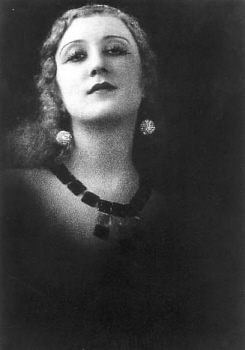


Olga recalled: ‘Everyone got up to dance except a man who, I had vaguely noticed, sought to be near me. Quietly but distinctly he said, “Some day you and I will be married”.’
As she was about to go home, the man said to her, ‘Please give me your telephone number. Permit me to call you. My name is Capablanca.’
The following morning her telephone rang:
‘It was Capablanca. “I hope you remember you are to have dinner with me tonight.” Whether I did, or did not, didn’t matter. He firmly said he would call for me at six. Precisely at six the porter rang from downstairs. When I came down Capablanca stood by his car. As he took off his hat I was surprised to see how handsome he was. From that time on, he called me every other day, and if I could not see him because of some other engagements he would be awfully unhappy. Sometimes he would spend most of the night on the bench opposite our windows on Central Park waiting for my return. If I said to him some cross words, as happened a few times, tears welled in his eyes, which would make me miserably guilty.
… Now I called him Capa and smilingly listened to his threats to knock out of me every bit of glamour. A few weeks later he received an invitation [to give two simultaneous displays in San Juan, Puerto Rico, in October 1934]. Before leaving he did something completely unlike his secretive nature. To the press people, gathered round him as usual, he made an extraordinary statement: “You have always prodded me with questions about my private life. Now I will give you some news of importance. You can print it anywhere you wish: for the first time in his life Capablanca is in love.” This was told me by the Cuban Consul – Pablo Suárez I believe was his name. I was surprised and somewhat embarrassed, but my thoughts were no more confused. I already shared Capablanca’s feelings.
When he returned to New York and kissed me, I told him so. “This is our fate”, said Capa. “I knew it from the very beginning. I shall regain my crown for you. There were years when life had been rather meaningless to me, but now I shall return to my own. I shall prove again that I am the best chess player in the world”.’
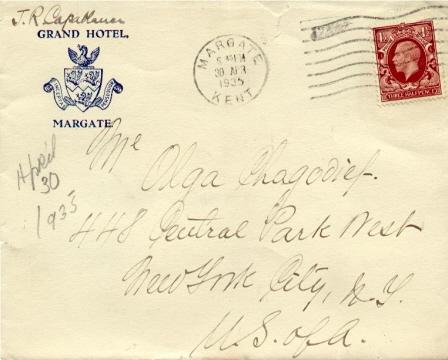
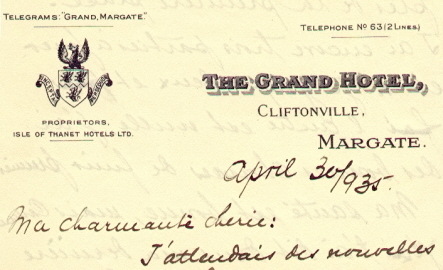
Olga’s reminiscences included much about Europe in the mid- and late 1930s. In the Moscow tournament of 1935 or 1936, she said, Capablanca was friendly with Nikolai Krylenko. At that event the Soviets helped each other, and the Cuban complained to Stalin, who came to the event and watched from behind a curtain.
The following episode happened around 1936:
‘It was my first trip to Belgium. Soon after our arrival Capa had to present his diplomatic credentials, as was required in the service. His title was that of Commercial Counsel, although his famous name had carried him far above the official appointment. When Capa, in the company of our Minister, had arrived at the Palace, the King of Belgium [Leopold III] was in the midst of some impressive audience. As the major-domo announced the names of the two Cuban diplomats, the King stopped in the middle of the reception at the other end of the immense palatial hall. “Capablanca!”, he loudly repeated, then, waving aside protocol exigencies, like an awe-stricken boy he ran across the hall to meet the newcomers. “Oh, maestro”, he said, grasping Capa’s hand. “All my life I have wanted to meet you. I have studied your games – and now you are here in person!” This was told to me by the Minister. Capa, of course, said nothing.
He was most secretive and proud and preferred to be left alone, although when necessary, as his position as a diplomat required, he would be most charming and interesting. The fastidious London newspapers described him as the best dressed and most handsome among his peers. He, however, was totally uninterested in the publicity that accompanied him everywhere he went. In his discarded mail I found invitations from Maharajahs, letters from the House of Marlborough and from several celebrities of the time. He remained a very private man, always polite, attentive, but evasive within the realms of possibility for a world famous man. His was a typical high-class European attitude, shunning publicity. Very often he would not even buy the newspaper with some nice article about him. When I remarked about it he shrugged his shoulders. “If I gathered up and kept all the newspapers that were kind enough to give me some of their space I would have to buy a house to store them.” Later I found that he had kept every little note I had written. For me he had different rules – this he proclaimed several times. Perhaps the nicest thing he said to me was, “You are the only person who doesn’t interfere with my being alone”. With a special man like Capa one had to know when to be silent, perhaps for days. Then, if his mood changed, all one had to do was to find themes that would interest him. To see that special green light in his eyes, a rare unusual light that would indicate his interest and attention, was the most rewarding feeling I knew.’
Elsewhere Olga referred to a paella lunch with Andrés Segovia and the pianist José Iturbi in London in 1937, as well as the following incident:
‘I believe Capa would have been a fine musician, had he ever studied the violin. It wasn’t just a coincidence that among his friends many were celebrities. How keen Capa’s ear was could be illustrated by this little episode. We were in Paris, staying at the Hôtel Majestic, which belonged to one of Capablanca’s faithful admirers, Monsieur Taubert. One morning while we were having coffee in our suite a couple of piano chords sounded on the flight above us.
“What a nuisance, a pianist right on top of us!”, I exclaimed.
“A great musician”, said Capa.
“How would you know that? Just a few notes were played.”
“By the way they were played.”
I forgot about this incident until we went downstairs. As we passed by the desk I asked the clerk somewhat capriciously, “A person who came to stay above us, is he a professional pianist?”
“Indeed, Madame”, said the clerk smilingly, “and by the way, your compatriot.”
“Who is he?”
“Monsieur Rachmaninov, Madame.”
I swallowed hard before telling Capa, “You were quite right”.
Another well-known musician often came to join us at dinner. I well remember the bell boy paging us nearly every evening: “Mr Prokofiev is waiting…”.
Luckily we were all soon to depart to other destinations. I had not enjoyed Mr Prokofiev’s company. He was rather what in those days I called a “sourpuss”. I don’t think he liked me either, for I represented a bit of old Russia, which he officially hated. A couple of times we had arguments. If I were to compare him to someone I would think of Alekhine. The same tinge of nastiness in a rather colorless face.
Capa’s taste in music was much stricter than mine. Bach was his favorite, then came Mozart and Beethoven, while I preferred more modern composers, Chopin, Rachmaninov, Grieg, Debussy, etc. We both adored symphonic orchestras, but while I was indifferent to chamber music, in Capa’s opinion the string quartet was music’s highest expression. Neither of us cared for jazz.
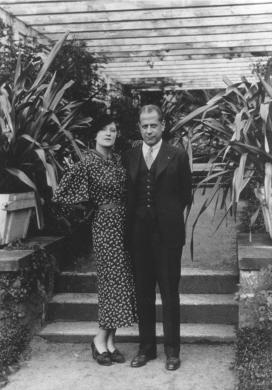
Capa never danced. I imagine this had something to do with a rather prudish aspect of his nature, his penchant for privacy, his remoteness. He admitted he didn’t care to see me dance because some familiarity was unavoidable in the way people danced together. I had never danced since, although previously I could have danced all night. As ever, I was cautious not to do anything that could irritate or upset him. Those of us who cared for Capa realized that he should be treated with the utmost consideration, not only because he fully deserved it but also because of apprehensiveness about his high blood pressure, which made his extremely sensitive nature dangerously affected by aggravations. Although to the very end I did not know the extent of his fragility, I always felt that he should be spared all possible annoyances.
Unfortunately I had no control over things outside our house. Certain aggravations caused to Capa in the last few months of his life precipitated his end. He spoke of this himself, and such was the opinion of his physicians, as both of them have written to me.
He was not religious. He did not believe in God “officially”, but he did really. Cleanliness, moral and physical, were among Capa’s outstanding characteristics. Immaculate, almost dainty, in his personal habits, Capa never used dirty words; nor did he like promiscuous stories. Even gossip of any kind was distasteful to him.
Capa was always well groomed and well dressed, as the English newspapers had often mentioned, which perhaps was partly due to his sober taste, and also to the fact that his clothes were always made by the same Savile Row tailor shop. I believe Capa went to the same London tailor for about 30 years, from father to son. Yet Capa possessed only the most necessary outfits that his position required, everything of excellent material, finely cut. As he said himself, he “never bought junk”. That in the long run served him well, since he was light on his clothes, and they seemed to be enchanted against wrinkles or dust. Also it helped that he had a good figure. He held himself erect, the posture of his head superb, his gestures well proportioned, those of a man used to public appearances. He was the type who made his clothes look better. His hat Capa changed only when it was completely worn-out; nor did he wear it at a becoming angle, turning down the brim. “I don’t wish to look like a gigolo”, he would retort to my persuasions. Capa’s only weakness was his ties. He would take a great deal of time choosing them. Conservative, they were beautiful, made of fine heavy silk and the latest design.
The elegance of Capa’s appearance was enhanced by his hands. Truly aristocratic. Small, exquisitely shaped, and velvety like a kitten’s paws. So vividly can I remember the touch of his fingers, comparable to the delicacy of a small child’s touch. Yet there was no weakness about those intelligent hands, capable of doing a variety of useful things. And whatever he did bore the mark of fitness and precision. He could cook divinely. He made packages swiftly and accurately like a candy-store clerk. It was a pleasure to watch him pack for traveling. His handwriting was calligraphic, every letter beautifully drawn, even if written in a hurry.
Capa was a strong billiards player. I heard an expert say that if he had devoted more time to the game he would have been a champion. The same was said about his tennis by one of the leading players on this continent. Capa could row like a professional and was an excellent driver; his reactions were instantaneous, which was important for he was inclined to drive very fast. I had heard that in his college days, at Columbia University, he was a promising young star, already sought by the Big League, in baseball.’
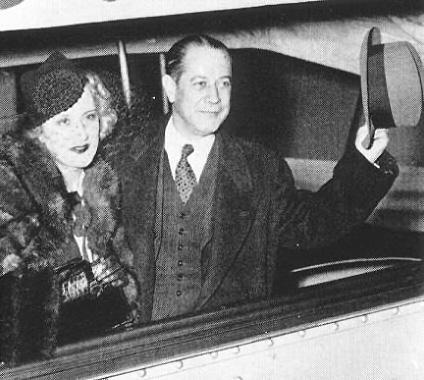
Although Capablanca moved effortlessly in high society, Olga also stressed the ease of his dealings with ‘ordinary people’.
‘Mr Fliegelman, we called him Fligu, was perhaps Capa’s most intimate friend, and probably Capa’s favorite one, for he was indeed completely devoted to Capa. Fligu was a typical Russian Jew, rather ungoodlooking but possessing tremendous charm, and it was impossible not to like him.
Capa told me that children always ran to him whenever they had cut or bruised themselves and would let him apply iodine uncomplainingly. “They trusted me. It was for their own good, even if did sting a bit.” He believed in the necessity of taking one’s medicine when needed. Anyone who knew him would soon learn to trust him implicitly. He was incapable of telling a lie.
Exacting, choosy, circumspect, these were characteristic traits of Capa, yet frequently he would show unusual consideration when it would have been natural for anyone to flare up. I remember how ready I was to burst into anger when a hotel servant rather carelessly broke a bottle of my precious perfume. Capa stopped me before I said a word. “Don’t you see, chérie, he is terribly upset.” The boy was sent out of the room with an extra tip. Well, he didn’t look downhearted. And, of course, I got another bottle of the same perfume.
Capa knew what to say to the elevator men to make them beam. He knew how to talk to the hotel clerks or to ship attendants to get the best of service and accommodations. He did not give large tips or permit any familiarity, yet every one of them would be eager to win his appreciation. There was about him an indefinable aura of superiority that distinguished him wherever he went. His presence drew attention. Even at large receptions invariably the most important would be drawn to him.’
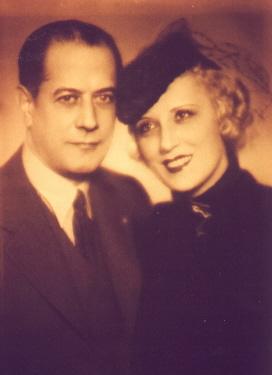
It was also mentioned by Olga that Capablanca’s skills were not limited to relations with human beings, as was shown when he bought her a chinchilla, which they named Katchushko:
‘Capa playing with the kitten was a most charming scene to watch. They understood each other perfectly, both with grace and swift movements. Without apparent effort Capa taught the kitty to bring back the paper balls he threw forth. Katchushko would perform endlessly, fluffy little tail up and making little meows asking for more. “I’m tired of playing with you”, Capa would say, and still throw another ball. In no time Katchushko learned to stand up on his hind paws, serving like a little soldier, and also giving his tiny paw. Capa used to say, “the most intelligent cat I’ve ever seen”. No doubt he had the ability of a trainer.’
Much of his spare time was devoted to books:
‘His favorite pastime was, with the exception of detective stories, which he loved, reading history and philosophical essays. A book on military strategy would absorb him for hours. Capablanca was always interested in the stories of my Russian past, especially in the great Grand-Papa, Generalissimus Count Evdokimov, the conqueror of Caucasus, who had vanquished the Muslim leader, someone like Khomeini called Shamil. My people had been military since the time of Ivan the Terrible. Capa never tired of listening avidly to these stories, asking for more and more. Capa mentioned many times that his father was a man of tremendous pride with a fiery temperament. Very difficult to get along with. Explosive as a keg of gunpowder. Capa was the son and grandson of Spanish officers, and my strict military background became the key to our future relationship. We both belonged to the same caste, which gave us the feeling of propinquity, later developed into love.’
As regards the game that had brought him worldwide fame:
‘I don’t think he loved chess. Almost resentfully he said that if chess had not so grabbed him, he would have studied music, or perhaps medicine. So multifaceted was he that I believe he would have been a leading star in whatever field he chose.’
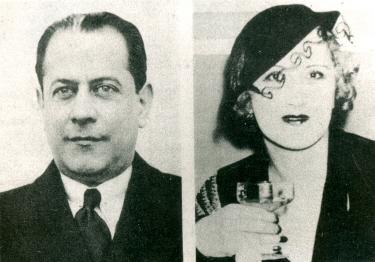
Because of the Cuban’s fine appearance and presence, it was not widely realized that he suffered from ill-health:
‘We already knew from Doctor Gómez’s instructions that Capa had to be careful about certain foods. What was most important was that he had to avoid anger and irritation. Alcohol was not recommended, but Capa liked only a little wine. The most menacing was the part dealing with aggravations, for at the time he was confronted with some nasty ones in connection with his divorce. He faced up to some unfair demands and actions.
The main cloud on our horizon was Capablanca’s marital status. He made no secret of it, having mentioned, soon after we met, his former marriage; it was ended de facto quite a few years previously. There was incompatibility of character, and he had always traveled a lot. Adored and pursued by women, naturally, he had had many infatuations, none of them too serious. His wife, too, had another man in her life; there were two teenage children and, of course, he took ample care of them all. But he simply had not bothered about divorce, since he definitely intended never to marry again.
After we met he had abruptly changed his mind. His entire outlook on life had changed. For the first time he experienced a feeling he had not known before, and it was most powerful. Especially since it came after the bleak years that had followed the debacle in Buenos Aires. Indeed, he had not lived a full life ever since, but now in the surge of new emotions he felt capable of recapturing himself and returning to great chess. His eyes sparkled, and I so remember the time he told me, “I shall recapture my crown for you”.
It was about then that he spoke to his wife. Direct and sincere, he told the truth, his intention to marry me, and he asked her for a divorce, offering the most generous conditions he could afford.
A gentleman, he could not envisage the adverse effect produced by his sincerity. The very thought of him being so in love as to wish to marry again made her furious. That was a shock, but he hoped that in time she would understand and come to terms, especially since under Cuban laws he could enforce certain issues. I said that, rather than that, I would wait with him. We both knew that his growing chess activities would mean more traveling and therefore more separations; it was essential that I should come to Europe and join him whenever that would be possible. He would introduce me as his futura, his fiancée, his future wife.’
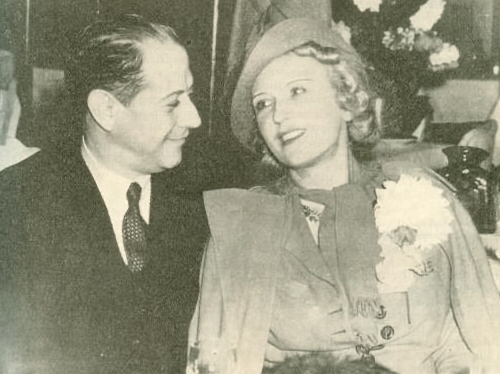
The couple were married in the United States on 20 October 1938, less than three weeks before he began play in the great AVRO tournament.
‘My memories of AVRO are gray. True, we arrived in Holland just after we were married, with the rewarding realization of having achieved the pinnacle of our most cherished wish. Nevertheless, somewhere in the background of our sensitivity lurked the shadow of regret – we were one day late for the opening of the tournament.
Capa had arrived from Havana in New York with considerable delay. I had spent some anxious days knowing how this would affect him, so meticulously precise in all his activities. I had not ventured any questions, but he mentioned the aggravations caused by Cuban chess groups and some domestic complications, no doubt related to his recent divorce. Those annoyances must have been grave enough to make him come late even to our wedding. We had to be married – the newspapers called it elopement – in Elkton, Maryland, where some formalities could be skipped, instead of having a beautiful formal ceremony. Already the next day we had to start on our trip to Europe, still one day too late.
Perhaps I already felt the shadow of a presentiment overhanging, but I had no idea of the precarious state of Capa’s health and how dangerous his high blood pressure could be. Much later, when we were in Paris, Dr Domingo Gómez, Capa’s principal physician, told me that Capa should not have played in that AVRO tournament at all.
In the latter part of [his second game against Botvinnik] Capa suddenly got up and quickly went out. I noticed that when he returned his face had a rather grayish pallor, although he continued the game to its end. He graciously surrendered to Botvinnik, shaking his hand with a smile. Later he told me he had had blackness before his eyes when he rushed out, to throw some cold water on his face in the wash-room. As was his rule, he offered no excuse or explanation, merely saying, “Botvinnik played well and I did not”. I was the only one who knew how unwell he was at AVRO.’
Olga also provided some other chess disclosures:
‘Capa was nostalgic sometimes when he talked about Cuba, the beautiful cheerful country of his childhood. He very seldom mentioned his past successes in chess. As a rule, he did not speak of chess. He was a very proud man. No doubt the loss of his crown involved great humiliation for him and suffering. We never touched that theme. It is true that Capa very much disliked Alekhine, to say the least, but he did not criticize his chess. I don’t think Capa ever gave up hope of getting another championship match. He described Lasker as “an old lion” and said of Euwe “irreproachable, but few fireworks”. Capa believed that Botvinnik would one day be world champion. “He is very strong and has the tenacity needed to get to the very top.” Sir George Thomas, I believe, was his favorite.’
Back in the New World during the Second World War, Olga asked her husband who the best generals were. ‘Capa said, “MacArthur, Patton and Rommel.” I said, ‘But Rommel is German and we are at war.’ Capa shrugged his shoulders. ‘That doesn’t change the fact that he is a good general”. So typical of Capa’s fairness in judging himself and others.’

Their marriage lasted less than three and a half years, until Capa’s death in New York at the age of 53:
‘Mount Sinai Hospital, 8 March 1942. Capa was unconscious. The doctors said a last-hope operation was to be performed on him. They suggested I go out, perhaps take a walk. I would be called if needed. Then I was in the street near the hospital entrance. A few steps to the corner. I stopped as I saw a star in the twilight sky. What time it was I didn’t know. The star seemed to have a second of special brightness. But it suddenly went out. And the mist darkened. There was a special silence in the sky. In the street. In my heart. I knew that Capa had died.’
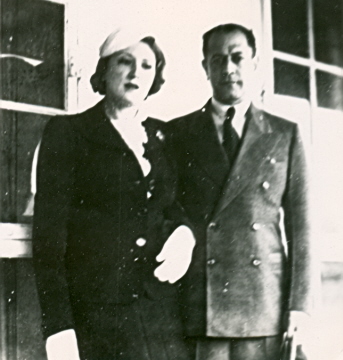
As a postscript it may be mentioned that one of Olga’s great hopes, never fulfilled, was to see a motion picture of Capablanca’s life. In a letter received in May 1987 she wrote:
‘For the first time in years I have seen an actor who could play Capablanca. I am referring to that special look in Capablanca’s eyes concentrating on a problem. Jeremy Brett playing Sherlock Holmes had that blue distant look. It really shocked me – reminding me so of Capa.’
Afterword: A number of the above illustrations, as well as the letter from Capablanca, were given to us by Olga Capablanca Clark. For further reminiscences by her, see pages 177-181 of Chess Facts and Fables.
To the Chess Notes main page.
To the Archives for other feature articles.
Copyright: Edward Winter. All rights reserved.